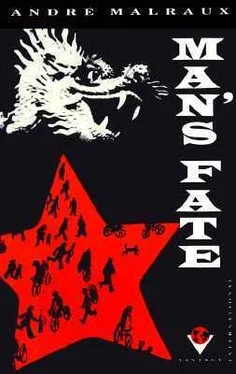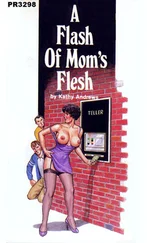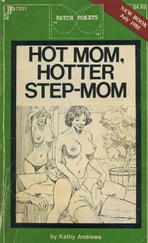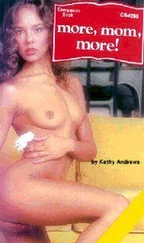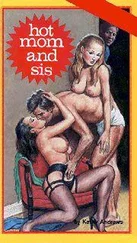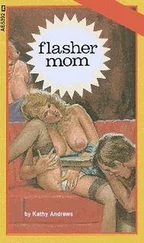The dealer was pursuing him, holding in his hand the belt buckle which Ch’en had refused to buy: “These are pieces of jade which the Japanese ladies are particularly fond of!”
Would he ever get rid of this fool?
“I’ll be back.”
What merchant does not know the formula? The car was approaching, much faster than usual, it seemed to Ch’en, preceded by the Ford of the bodyguard.
“Go to hell!”
The car, speeding towards them over the uneven gutter-stones, was violently shaking the two detectives on the running-boards. The Ford passed. Ch’en stopped, opened his brief-case, and took hold of the bomb wrapped in a newspaper. With a smile the dealer slipped the belt buckle into the empty pocket of the brief-case. In doing so he was barring Ch’en’s two hands:
“Pay me what you like.”
“Go to hell!”
Dumbfounded by this outburst, the antiquarian did not budge, merely gaped at Ch’en whose mouth was also open.
“Aren’t you a little ill?” Ch’en could no longer see anything, limp as if he were going to faint: the car was passing.
He had not been able to free himself in time from the antiquarian’s gesture. “This customer is going to be iU,” the latter was thinking. He made a movement to support him. With one blow, Ch’en knocked aside the two arms held up to him and started off. The blow left the dealer stunned for a moment. Ch’en was half run- rung.
“My buckle!” shouted the merchant. “My buckle!”
It was still in the brief-case. Ch’en was at a loss. His every muscle, his every nerve was expecting a detonation which would fill the street. Nothing. The car had
turned, had even passed beyond Suan no doubt. And this fool remained there. There was no danger, since everything had failed. What had the others been doing? Ch’en began to run. “Stop, thief! ” shouted the antiquarian. Other dealers appeared in the doorways. Ch’en understood. In sheer rage he wanted to run away with the accursed buckle, throw it somewhere. But more onlookers were approaching. He threw it in the antiquarian’s face, and only then noticed that he had not shut his brief-case. Since the passing of the car it had stayed open, right before the eyes of that imbecile and of the passers-by, the bomb visible, not even protected by the newspaper which had slipped aside. He finally closed the brief-case with caution (he was on the point of banging the flap down; he was struggling. with all his might against his nerves). The dealer was hurrying back to his shop. Ch’en walked on.
“Well?” he said to Pei as soon as he joined him.
“What about you?”
They looked at each other breathlessly, each wanting the other to speak first. They stood there, outlined in profile against the blurred background of the buildings- hovering on the verge of speech, seeming to be stuck to the pavement, in postures full of hesitations. The light of the early afternoon sun, very strong despite the clouds, set off Ch’en’s hawklike profile and Pei’s roundish head. Among the bustling and anxious passers-by, those two figures with trembling hands, planted on their fore-shortened shadows, seemed completely isolated. All three were still carrying their brief-cases. It would not be wise to remain there too long. The restaurants were not safe. And they had already met and separated too many times in this street. Why? Nothing had hap-
“To Hemmelrich’s,” said Ch’en finally.
They started off, picking their way through backstreets.
“What happened?” asked Suan.
Ch’en explained. As for Pei, he had been uneasy when he saw that Ch’en did not leave the antiquarian’s shop alone. He had betaken himself to the spot where he was to throw his bomb, a few meters from the comer. The cars in Shanghai drive on the left side of the street; ordinarily they make a short turn, and Pei had taken his post on the left sidewalk, in order to throw his bomb at close range. As it happened, the car was going fast; there were no carriages in the Avenue of the Two Republics. The chauffeur had made a wide turn, thus skirting the opposite sidewalk, and Pei had found himself separated from it by a rickshaw.
“So much the worse for the rickshaw,” said Ch’en. “There are thousands of other coolies who can live only by Chiang Kai-shek’s death.”
“I would have missed my aim.”
Suan had not thrown his grenades because neither of the bombs had gone off-he had supposed that something was wrong, that perhaps the general was not in the car.
They were advancing in silence between walls turned to a sickly pale shade by the yellowish sky, in a wretched solitude littered with rubbish and telegraph wires.
“The bombs are intact,” said Ch’en in a muffled voice. “We’ll try again in a little while.”
But his two companions were crushed; those who have failed in an attempted suicide rarely try it again. As they went on, their bewilderment gave way to despair.
“It’s my fault,” said Suan.
Pei repeated:
“It’s my fault.”
“Enough,” said Ch’en, exasperated. He was reflecting, as they pursued their wretched walk. It wouldn’t do to start all over again in the same way. The plan was bad, but it was difficult to imagine another. He had thought that. They reached Hemmelrich’s.
From the back of his shop Hemmelrich heard a voice speaking in Chinese, and two others which were answering. Their pitch, their excited rhythm, had attracted his attention. “Just yesterday,” he thought to himself, “I saw two chaps walking by, whose faces were enough to give you chronic hemorrhoids, and who certainly weren’t there for their pleasure. ” It was difficult for him to hear distinctly: upstairs the child was wailing incessantly. But the voices died away and short shadows on the sidewalk showed that three figures were standing there. The police?. Hemmelrich got up and walked towards the door. There was nothing about his looks, he reflected-conscious, as always, of his flattened nose and his sunken chest-that could inspire fear in an aggressor. But he recognized Ch’en even before his hand reached his pocket; he held it out to him instead of drawing his revolver.
“Let’s go into the back room,” said Ch’en.
All three passed in front of Hemmelrich. He was examining them. Each with a brief-case, not held carelessly, but squeezed tightly under his arm.
“Listen,” said Ch’en as soon as the door was closed: “can you give us hospitality for a few hours? To us and to what we have in our brief-cases?”
“Bombs?”
“Yes.”
“No.”
The child, upstairs, was still crying. His most painful cries had become sobs, with occasional little clucking sounds, as though he were weeping for fun-which made them all the more poignant. The records, the chairs, the cricket were so exactly the same as when Ch’en had come there after the murder of Tang Yen Ta that Hem- melrich and he both remembered that night. He said nothing, but Hemmelrich guessed:
“The bombs,” he said, “. I can’t at this moment. If they find bombs here they’ll kill my wife and the kid.” “Good. Let’s go to Shia’s.” He was the lamp-dealer whom Kyo had visited on the eve of the insurrection. “At this hour there’s only the boy.”
“Understand me, Ch’en: the kid is very sick, and the mother isn’t in too good shape. ”
He was looking at Ch’en, his hands trembling. “You don’t know, Ch’en, you can’t know how lucky you are to be free!. ”
“Yes, I know.”
The three Chinamen went out.
“God damn!. God damn!” Hemmelrich said to himself, “won’t I ever be in his place?” He was swearing to himself, calmly, ponderously. And he was slowly climbing the stairs to the room. His Chinese wife was sitting, her eyes fixed on the bed. She did not turn round.
Читать дальше
